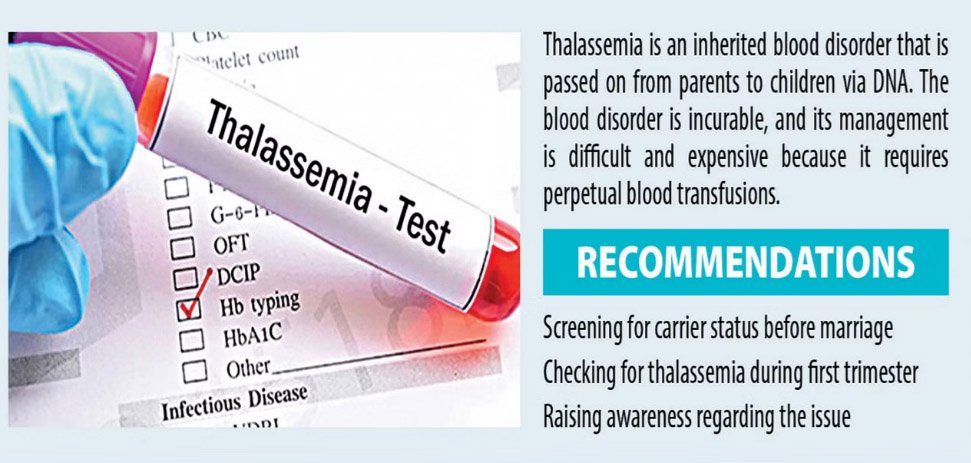Two Thalassemia carriers should not start a family to prevent the spread of this fatal disease, said physicians yesterday at an event.
Given that the treatment of this disease is expensive and causes the patients great distress, the best course of action is prevention, they said at the Bangladesh Shishu Hospital and Institute premises, marking World Thalassemia Day.
“All parents of patients who came to us for treatment said they were unaware they were thalassemia gene carriers,” said Prof Belayet Hossain of BSHI’s paediatric haematology department at the event.
He also stressed the importance of blood screening prior to marriage.
According to the US Centers for Disease Control and Prevention, thalassemia is an inherited blood disorder that is passed on from parents to children via DNA. The blood disorder is incurable, and its management is difficult and expensive because it requires perpetual blood transfusions.
According to the Health Bulletin published by the Directorate General of Health Services (DGHS), over 5,000 thalassemia affected children are born every year, and it is estimated that six out of every 100 Bangladeshis carry the gene.
Prof Belayet said there is no chance that a mother will give birth to a child with thalassemia if none or only one of the partners carries the gene.
“However, there is a 25 percent chance that a newborn will suffer from lifelong thalassemia if both parents have the gene. In 50 percent of cases, the newborn will be a carrier of the gene like the parents but will not suffer from thalassemia. Meanwhile, in 25 percent of cases, the newborn will neither be a carrier nor a sufferer,” he added.
Dr Md Abdul Wohab, a paediatric haematology oncologist at the BSHI, shared the latest updates on the treatment of thalassemia.
He said bone marrow transplantation (BMT) is the sole treatment option for the disease.
“There are multiple risk factors that can affect the outcome of the BMT. Besides, there are significant mortality and rejection risks associated with the procedure, which is so expensive that most families cannot afford it,” he added.
In Bangladesh, BMT surgery is available at only three hospitals — Dhaka Medical College Hospital, Combined Military Hospital and Evercare Hospital.
Prof Dr Md Selimuzzaman, secretary general of BSHI Thalassemia Centre, said, “Thalassemia can only be prevented if two carriers don’t start a family together. And detecting the carriers would be easier if screening can be done among all school children.”
Dr Mohammad Shahidullah, chairman of the board of directors at BSHI, suggested arranging for more services for thalassemia patients at for BSHI.

